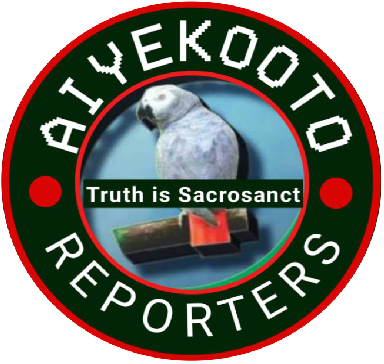Our Making Nigeria Better series takes us to Ekiti State today where we examine the economic potential of the territory
[1] Ekiti State has one of the lowest internally generated revenue (IGR) figures in Nigeria. The paltry sum of $13m a year the state generates is just over 10% of the $110m Ekiti gets in Federation Account Allocations and this needs to change immediately. In my opinion, the only way to do this from what I can see is through agriculture, agro-processing, solid minerals and tourism
[2] First of all, we need to turn the whole of the south of the state into one huge cocoa plantation. Emure, Ise Orun, Ikere, Gbonyin, Ekiti South West, Ado Ekiti, Ekiti West, Efon, Ekiti East, Irepodun/Ifelodun and Ijero Local Government Areas all need to be turned into massive and I mean massive cocoa plantations engaging about 500,000 farmers. Ekiti State has 6,353 square km in total and under my radical proposals, about 2,000 sq km of this will be turned into cocoa farmland
[3] Cocoa needs the canopy of the tropical rainforest to grow, so we shall use every available inch of rainforest in Ekiti State to grow cocoa. Nigeria currently produces about 245,000 tonnes of cocoa a year. I want Ekiti alone to produce 250,000 tonnes. This will involve providing farmers with high yielding seedlings, offering them their own portions of land to grow their own beans and also getting them to work on communal cocoa cooperatives
[4] These cooperatives will be communally owned by the farmers, with the state government having no more than a 20% stake in them. Whoever agrees to work in one plantation will also get a small portion of land to grow their own cocoa. Private agricultural conglomerates will also be invited to take out stakes in these plantations.
[5] A cocoa grinding plant will also be built in Ado Ekiti to process these beans into cocoa powder and butter. This facility should employ around 500 people, making it the largest employer in Ekiti State
[6] As things stand, Ekiti State is simply too agrarian, so efforts have to be stepped up to attract mining companies to process the state’s mineral deposits. These include granite, kaolinite, columbite, channockete, iron ore, baryte, aquamine, gemstone, phosphate, limestone and gold among others. We should aim to attract processors, both local like Dangote Industries and foreign ones like Rio Tinto. They must be desperately wooed and encouraged to open up processing plants in Ekiti State. In the first year, the target should be to get 10,000 people working in these facilities.
[7] Ekiti State Tourist Board also needs to get its act together. It needs to be given annual tourist targets for facilities like Ikogosi Warm Springs, Arinta Water Falls, Olosunta and Orole Hill Ikere and Fajuyi Memorial Park, Ado Ekiti. I think an all-encompassing “Ekiti Tourist Package” should be put together so tourists can visit all of these facilities for a standard fee. Maybe over a weekend, they can be driven to all of these tourist attractions in dedicated buses by professional tour guides.
[8] At the moment, water from Ikogosi Warm Springs is processed and packaged into bottled water by UAC Nigeria. We want a lot more than this. We want UAC to build a bottling plant in Ikogosi Ekiti, employing say around 500 workers. The company can be given a five year tax-free holiday and a land lease of say 50 years to do this.
[9] As part of a Nigerian chocolate masterplan, Ekiti has to be linked by a railway cargo line to Ondo, Kwara, Kano, Ogun and Lagos States. They will all produce ingredients for chocolate, which will be shipped to a factory at Aiyetoro on the Ondo State coast, where a dedicated terminal will be built to export finished produce. Constructing this line in itself will employ hundreds of Ekiti youths.
[10] Over the longer term, we have to look at turning towns like Ado Ekiti and Ijero into manufacturing centres for agricultural and agri-processing equipment. They should manufacture products like seed crushing facilities, milking machines, animal feed compounds, herbicides and fertilisers








